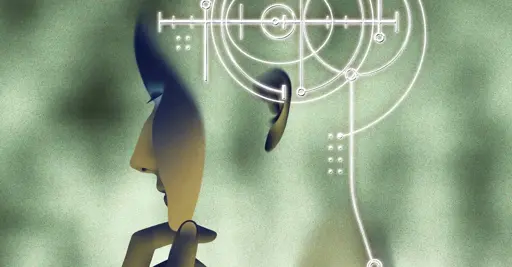- cross-posted to:
- hackernews@lemmy.bestiver.se
- aicompanions@lemmy.world
- cross-posted to:
- hackernews@lemmy.bestiver.se
- aicompanions@lemmy.world
If this is the way to superintelligence, it remains a bizarre one. “This is back to a million monkeys typing for a million years generating the works of Shakespeare,” Emily Bender told me. But OpenAI’s technology effectively crunches those years down to seconds. A company blog boasts that an o1 model scored better than most humans on a recent coding test that allowed participants to submit 50 possible solutions to each problem—but only when o1 was allowed 10,000 submissions instead. No human could come up with that many possibilities in a reasonable length of time, which is exactly the point. To OpenAI, unlimited time and resources are an advantage that its hardware-grounded models have over biology. Not even two weeks after the launch of the o1 preview, the start-up presented plans to build data centers that would each require the power generated by approximately five large nuclear reactors, enough for almost 3 million homes.



Thanks for the measured and thoughtful reaponse.
I don’t treat the Fermi Paradox or Great Filter as scientific fact and more like a philosophical representation of human nature applied to the universe at large.
I absolutely agree that life is very rare. I also agree that we have no frame of reference to the vastness of space. However, human nature, on the scale of the Earth, is trending towards self immolation due to systemic powers that can be treated as a constant.
I’m glad you appreciate it, it was as much an excuse for me to unload that rant as anything else :)
But we actually get into trouble when our models of reality are poor. Our nature isn’t self destructive at all, look at how many times we’ve been at the brink of nuclear annihilation and someone said, “actually don’t”, some of them in defiance of entrenched power structures that punished them for it.
We’ve had that world ending button for most of the last century, and we’ve never used it. If we really, on an instinctual level, were self-destructive we never would’ve evolved.
I think the real problem is the power structures that dominate us, and how we allow them to. They are aberrant, like tumours. They have an endless growth strategy, which just like in malignant tumours tend to kill the host. If they’re destroyed, the host can go on to live a complete life.
And things can change fast, these structures are tenacious but fragile. Look at the UHC assassination - claims immediately started getting approved. After decades of entrenched screwing over of people, they flipped on their back the moment they were threatened. How many other seemingly intractable problems could be cut out tomorrow if we applied the right kind of pressure?